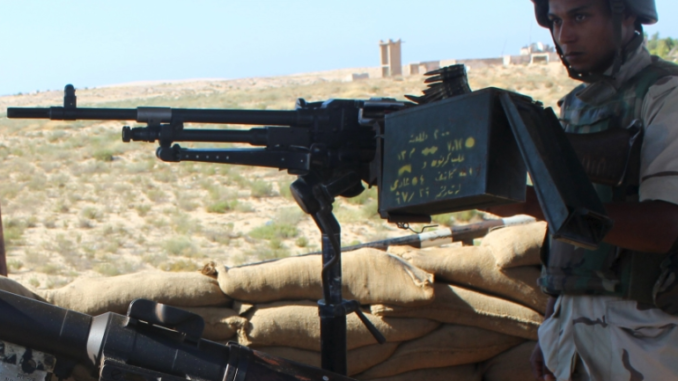
The jihadist group Islamic State (EI) claimed responsibility via its propaganda organ ‘Amaq’ for the attack that left eleven Egyptian army personnel dead in Sinai on Saturday. This death toll is one of the highest recorded by Egyptian forces in years on their soil.
The attack on a military water pumping station in the desert peninsula, which is home to radical cells, some of which have pledged allegiance to the EI, has sparked a wave of condemnation abroad.
The African Union, Paris, Washington and Khartoum have all denounced a “terrorist” act which, Egyptian President Abdelfattah al-Sissi has promised, will not “defeat the determination of the country and its army to cut the evil of terrorism at the root.
The army and the police launched in February 2018 a vast “anti-terrorist” operation in Sinai but also in the Western Desert, between the Nile Valley and the border with Libya. In Sinai, the attacks are particularly focused on one point: the oil and gas pipelines that supply Israel and Jordan.
The last major attack in Cairo was in May 2020, when an attack targeted the Pyramids of Giza in the southwest of the capital, injuring 17 people a month before Egypt hosted the African Cup of Nations soccer tournament.
